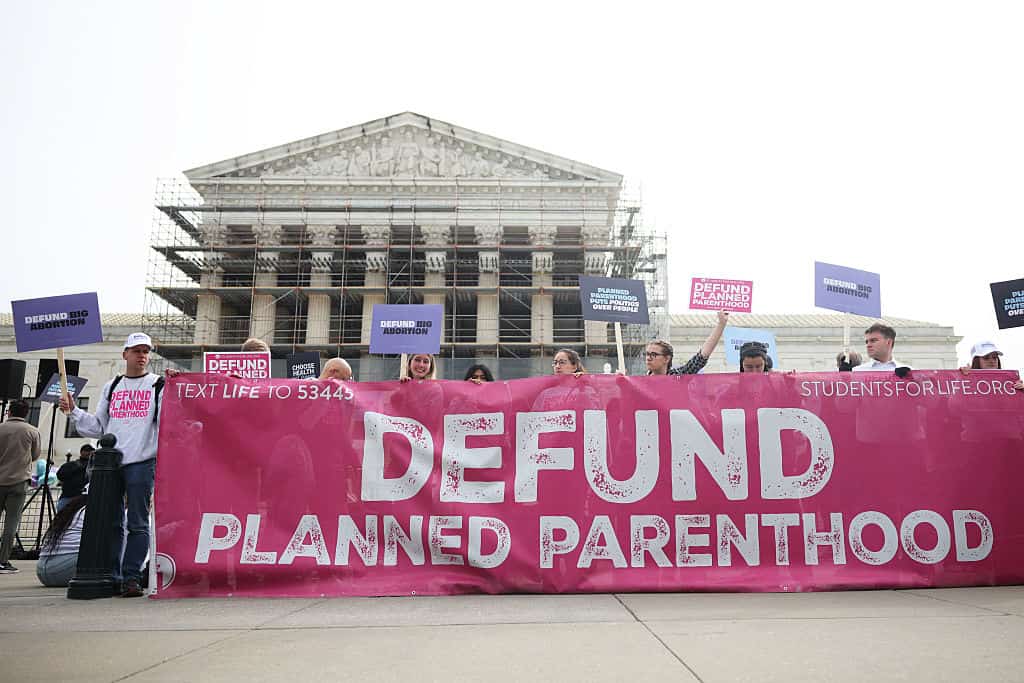Big Win for Faith-Based Adoption Agencies in Michigan

A federal judge in Michigan has come to the aid of faith-based adoption and foster care agencies in that state. Judge Robert Jonker issued an order on September 26 blocking the state from revoking the license of a Catholic agency that referred same-sex couples to other agencies rather than compromise its beliefs about marriage.
St. Vincent Church Catholic Charities in Lansing, Michigan provides adoption and foster child placement under a contract with the Michigan state government. St. Vincent willingly works with same-sex couples to provide family counseling and other services related to adoption and foster care. It will even place children with same-sex couples as long as some other agency and the state have approved them as qualified. What St. Vincent will not do, however, because of its beliefs concerning marriage, is assess and recommend such couples as qualified to adopt or foster.
At the heart of this case is a 2015 state law guaranteeing the religious freedom of adoption and foster care agencies against government discrimination. It was strongly opposed by the Left at the time, including LGBT activist organizations. It became a 2018 election issue in Michigan, where the office of state Attorney General was won by Dana Nessel, a lesbian who campaigned on the promise that she would not enforce the law.
As the Daily Citizen previously reported, Nessel and the American Civil Liberties Union teamed up in a “friendly lawsuit” to nullify the 2015 state law that protects agencies such as St. Vincent. In a “consent decree” orchestrated between the two, Nessel “conceded” that the law was unconstitutional and that she (and the state of Michigan) would not enforce it.
That put faith-based agencies in Michigan in jeopardy at the hands of the chief law enforcement officer of the state.
Threatened with a loss of its contract with the state, St. Vincent sued back in April. After reviewing the case and the arguments of the parties, Judge Jonker issued a preliminary injunction requiring the state to take no action against the agency until a trial can be held. The judge ruled that it is highly probable that St. Vincent will succeed at trial on its claim that Michigan has violated the agency’s religious freedom.
Religious hostility exhibited by Nessel played a major role in Judge Jonker’s decision. “Defendant Nessel is at the very heart of the case,” his opinion reads. “She referred to proponents of the 2015 law as ‘hate-mongers’ and said the only purpose of the 2015 law was ‘discriminatory animus.’ She described the 2015 law as ‘indefensible’ during her campaign. These statements raise a strong inference of a hostility toward a religious viewpoint.”
The decision is reminiscent of the U.S. Supreme Court’s decision in Masterpiece Cakeshop v. Colorado Civil Rights Commission. That court found religious hostility by the state of Colorado against Jack Phillips, the Christian baker who was targeted by the state for refusing to create a custom wedding cake for a same-sex wedding. The Michigan case contains similar elements of government hostility.
“The State’s real target is the religious beliefs and confessions of St. Vincent, and not discriminatory conduct,” Judge Jonker wrote. “That strongly suggests the State’s real goal is not to promote non-discriminatory child placements, but to stamp out St. Vincent’s religious belief and replace it with the State’s own.”
This decision in defense of religious freedom implicitly rejects the notion that belief in biblical values about marriage and human sexuality equates to “hate” against LGBT persons. What a difference it would make if we could all agree on that simple proposition. If an LGBT couple can still buy a wedding cake down the block, or adopt a child from another agency, why must there be an “all or nothing” vendetta against Christians attempting to live out their faith as they see fit?
In a pluralistic society whose highest aims should be to live and work together while respecting our differences, government should not be taking sides against people of faith. Can’t we recognize that fact and move ahead as citizens with more in common than the things that divide us? This decision is a good start in that direction.
The case is Buck v. Gordon.
ABOUT THE AUTHOR

Bruce Hausknecht, J.D., is an attorney who serves as Focus on the Family’s judicial analyst. He is responsible for research and analysis of legal and judicial issues related to Christians and the institution of the family, including First Amendment freedom of religion and free speech issues, judicial activism, marriage, homosexuality and pro-life matters. He also tracks legislation and laws affecting these issues. Prior to joining Focus in 2004, Hausknecht practiced law for 17 years in construction litigation and as an associate general counsel for a large ministry in Virginia. He was also an associate pastor at a church in Colorado Springs for seven years, primarily in worship music ministry. Hausknecht has provided legal analysis and commentary for top media outlets including CNN, ABC News, NBC News, CBS Radio, The New York Times, the Chicago Tribune, The Washington Post, The Washington Times, the Associated Press, the Los Angeles Times, The Wall Street Journal, the Boston Globe and BBC radio. He’s also a regular contributor to The Daily Citizen. He earned a bachelor’s degree in history from the University of Illinois and his J.D. from Northwestern University School of Law. Hausknecht has been married since 1981 and has three adult children, as well as three adorable grandkids. In his free time, Hausknecht loves getting creative with his camera and capturing stunning photographs of his adopted state of Colorado.
Related Posts

New York Ends Fight to Force Nuns to Pay for Abortions
January 27, 2026



